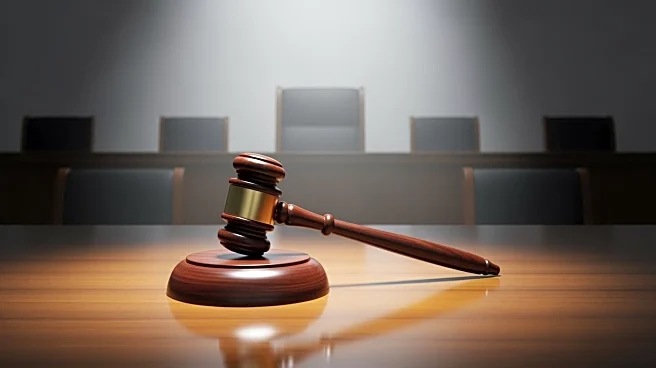What's Happening?
The Supreme Court is currently deliberating on a significant case concerning Section 2 of the 1965 Voting Rights Act. This section is crucial for creating majority-minority districts to prevent the dilution of minority votes. The court's decision could
potentially eliminate these districts, which would significantly impact Black representation in Congress and could result in Democrats losing approximately a dozen seats. Justice Brett Kavanaugh is seen as the potential swing vote in this case. During oral arguments, Kavanaugh expressed that while race-based remedies are permissible, they should not be indefinite, suggesting a possible shift in the court's stance on racial considerations in voting rights.
Why It's Important?
The outcome of this case could have profound implications for U.S. politics, particularly affecting minority representation and the balance of power in Congress. If the court rules against the current provisions of the Voting Rights Act, it could lead to a reduction in minority representation, making it more challenging for Democrats to secure a majority in the House. This decision could also set a precedent for future cases involving race-based policies, potentially affecting affirmative action and other civil rights protections. The decision will be closely watched by political leaders, civil rights organizations, and minority communities.
What's Next?
The Supreme Court's decision is pending, and its outcome will likely prompt reactions from various stakeholders. Civil rights groups may increase advocacy efforts to protect voting rights, while political parties will need to strategize around the potential changes in districting. The decision could also lead to legislative efforts to address any gaps left by the court's ruling. Additionally, the ruling may influence future judicial appointments and the broader discourse on race and equality in the U.S.
Beyond the Headlines
This case highlights ongoing debates about the role of race in American society and the legal system's approach to addressing historical inequalities. The court's decision could signal a shift in how racial issues are addressed legally, potentially affecting not only voting rights but also broader civil rights protections. The case underscores the importance of the judiciary in shaping public policy and the potential long-term impacts of Supreme Court decisions on American society.
















